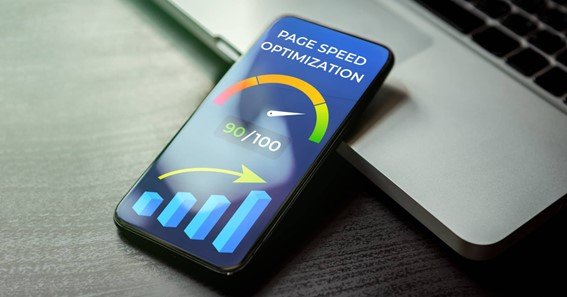In today’s digital landscape, optimizing your website for mobile users is essential. With more users accessing the web via mobile devices, improving speed is crucial not just for user experience but also for SEO. Here’s a detailed guide on how to boost your mobile site’s performance.
1. Optimize Images
Images often take up a significant portion of page load time. Compress images without sacrificing quality using formats like WebP or JPEG 2000. Tools like TinyPNG or plugins like Smush (for WordPress) can reduce file sizes, making your site faster for mobile users.
2. Minimize HTTP Requests
Every element on a page (images, scripts, CSS files) requires an HTTP request. Reducing the number of requests can speed up your website significantly. You can achieve this by combining JavaScript and CSS files and using CSS sprites to combine multiple images into one.
3. Enable Browser Caching
Caching stores a copy of your site’s resources on a visitor’s device, so returning visitors don’t need to download everything again. This reduces server load and speeds up subsequent visits. Use caching plugins if you’re on a platform like WordPress.
4. Implement Lazy Loading
Lazy loading ensures that images and videos only load when they enter the user’s viewport, meaning your page doesn’t waste time loading elements that aren’t immediately visible. This improves initial load times, especially on mobile connections.
5. Use Accelerated Mobile Pages (AMP)
AMP is a Google-backed project designed to make web pages load faster on mobile devices. By simplifying HTML and JavaScript, AMP ensures that your content loads instantly on mobile devices, enhancing user experience.
6. Optimize Above-the-Fold Content
Make sure the most important content (above the fold) loads first. This gives users the perception that the page is loading faster, improving engagement and reducing bounce rates.
7. Minify JavaScript and CSS
Minifying removes unnecessary characters from JavaScript and CSS files, reducing file size without affecting functionality. This can be done manually or with tools like WP Rocket for WordPress.
8. Use a Content Delivery Network (CDN)
A CDN stores copies of your site on servers across the globe, reducing the distance between the user and the server. This helps in speeding up your site, especially for international visitors on mobile networks.
9. Optimize Server Response Time
Ensure that your server is optimized to handle requests efficiently. If your server is slow, it will take longer for pages to start loading. You can improve this by upgrading your hosting plan, using managed hosting, or employing a CDN.
10. Test and Monitor Your Mobile Speed
Regularly test your mobile site speed using tools like Google PageSpeed Insights, Lighthouse, and GTmetrix. These tools provide insights into how fast your site loads and give actionable recommendations for improvement.
FAQ
- Why is website speed important for mobile users? Fast-loading websites offer a better user experience, improve SEO rankings, and reduce bounce rates. Mobile users, in particular, expect pages to load quickly due to slower mobile networks.
- What is lazy loading, and how does it help? Lazy loading defers the loading of non-critical elements (like images and videos) until they’re needed, reducing initial load time and bandwidth usage.
- How can I test my mobile website speed? Tools like Google PageSpeed Insights, GTmetrix, and WebPageTest offer detailed insights into your website’s mobile performance and suggest areas for improvement.
- What is AMP, and should I use it? AMP (Accelerated Mobile Pages) is a Google-backed project that simplifies web pages to load faster on mobile. It’s useful for content-heavy websites aiming to improve load times.
- How does caching improve website speed? Caching stores copies of your site’s static elements on the user’s device, speeding up subsequent visits by eliminating the need to re-download these resources.
By implementing these strategies, you can ensure that your website loads quickly on mobile devices, improving user experience and search engine rankings.










